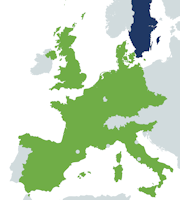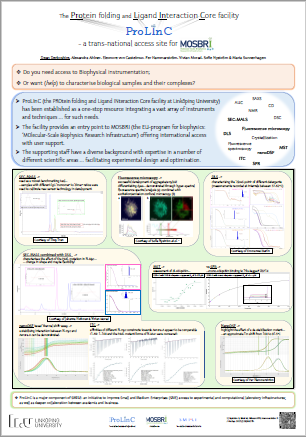7) ProLinC – PROtein folding and Ligand INteraction Core facility, Linköpings Universitet
Location: Linköping, Sweden
Web-site(s):
MOSBRI reference site for the following techniques:
Fluorescence Spectroscopy, SPR: Surface Plasmon Resonance
Practical information:
View here.

Partner description
ProLinC (Protein folding and Ligand Interaction Core facility) holds an integrated set of molecular biophysics tools to investigate protein dynamics, intrinsically disordered proteins (IDPs, protein-protein/ligand interactions (PPI), protein stability and kinetics of ligand interactions and self-assembly.
Instruments / methodologies offered through TNA
Linköping University is the invention site of the SPR application technology Biacore, and continues to develop biosensor methods within Life Science Technologies, where specific sensors can be developed and tailored to user needs. ProLinC holds a full setup of fluorescence techniques, and novel fluorescence probes are designed in-house, with applications to assay amyloid formation based on fluorescence hyperspectral imaging, amyloid fibril seeding kinetic assays, and amyloid fibril polymorph classification assays by fluorescence probes have been developed both for material in tissue (human, mouse, Drosophila) and in vitro. Assays are set up in a normal lab, or in a BSL-3 laboratory for prion studies in accordance with EU regulations.
Under TNA terms, users are offered access to all instrumentation within the ProLinC Core Facility, including
- UV/VIS
- Analytical Ultracentrifugation (AUC)
- circular dichroism spectroscopy (CD)
- calorimetry (DSC, ITC)
- fluorescence spectroscopy/anisotropy and /plate readers
- fluorescence microscopy (including hyperspectral)
- microscale thermophoresis (MST)
- dynamic light scattering (DLS; cuvette and plate reader)
- SEC-MALS
- NMR (500 and 600 MHz)
- thermofluor
- small-angle X-ray scattering (SAXS; in-house)
- stopped-flow (absorbance and fluorescence)
- surface plasmon resonance (SPR; Biacore)
- Access to advanced fluorescence relaxation is available on request at the Trondheim node, and pre-infrastructure sample conditioning for solution x-ray and neutron scattering is offered.
Access modality: Each access is on average 4 days long. Both physical and remote access is provided.
Sample requirements and further technical details
Full details of the sample requirements for each of the techniques offered at this TNA site can be found here. Further, more specific details, of some of the techniques offered are also included.

